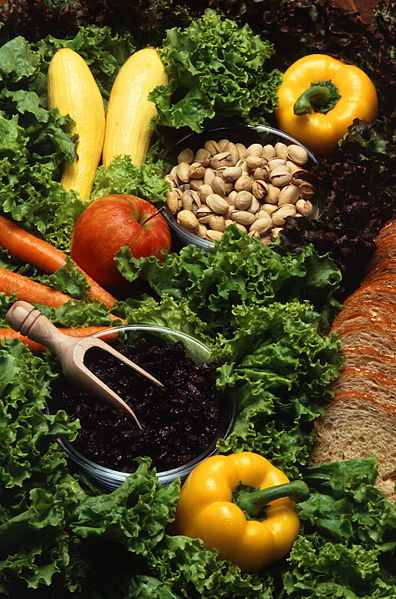
Several years ago a graduate student attending a Bible study at our home said, “I’m studying Soil and Crop Sciences, but I’m not at all clear whether or how my faith connects to my studies.” I opened my Bible and began reading aloud: “In the beginning, God created the heavens and dirt.” Although I took some liberties in the translation, the Genesis text is clear. As we at Chesterton House continually remind the students we work with, God cares about the earth in all its messy materiality.
Perhaps nobody appreciates this better than Cornell Professor of Crop and Soil Sciences Gary Fick. Dr. Fick has been a faithful member of the local church and campus Christian communities for 40 years–to the best of my recollection, he was the first Christian professor I ever met at Cornell. For fifteen years he has been my neighbor, and I can attest to his skill in growing everything from blueberries to broccoli. And in 2008 he published a wonderful book entitled Food, Farming, and Faith.
“It’s all about food.” So begins the first chapter of this book. And it’s true. Food production and consumption are all about nature–our use and abuse of creation. Food production and consumption are also cultural–entailing ritual, festivity, and issues of economic status. “Food is a comprehensive theme,” Fick writes. Indeed, whether your interest is in sabbath, sustainability, or social justice, “All aspects of life are interconnected with food.”
But food is also about death. Not only is food security one of the most pressing social and humanitarian issues of the 21st century, but “life comes only . . . by taking life.” This is most obviously true of the plant and animal life that we consume. It is also true of Christ, who gave his life that we might live. We consume His body and blood in anticipation of eternal life and the consummation of all things in Christ.
“In case you thought environmentalism and Christianity were at odds,” Bill McKibben says in his endorsement, “here’s a book that makes clear, in great and rewarding detail, just how closely allied they actually are. This will be a useful primer for the blossoming green religious movement.” Indeed, this is Christian scholarship at its best–a work from someone who has rolled up his sleeves, literally and figuratively, in order to “plow deep.” I asked Gary once how long he worked on the book. His answer: “All my life.”
The audio of Dr. Fick’s lecture, “The Church and Food,” is now posted.
FURTHER READING
The literature on food in general and Christianity and food more specifically has mushroomed in recent years. Articles of interest include Chesterton House board member Ryan O’Dowd’s “Thought for Food” (on the politics and spirituality of food), Cornell faculty member Chris Barrett’s “Overseas Development Assistance” (on food security), and Cornell graduate Mary Eberstadt’s “Is Food the New Sex?” (on, well, one section is entitled “Broccoli, Pornography, and Kant”). In addition to Fick’s Food, Farming, and Faith, other titles of interest include Eat Well, Good Eating, Sharing Food, The Spirit of Food, Year of Plenty, and Grace at the Table. Wendell Berry recently produced Bringing it to the Table; his classic discussion of culture and agriculture is The Unsettling of America. Another classic is Capon’s The Supper of the Lamb. These titles and more are reviewed by our friend Byron Borger at Hearts & Minds Books here and here. The July 2011 issue of The Other Journal is all about food, and Books & Culture just posted this review of Food & Faith. Finally, we’ll mention that the New York Times had an interesting feature on Christian-libertarian-environmentalist-capitalist-lunatic-Farmer Joel Salatin.


